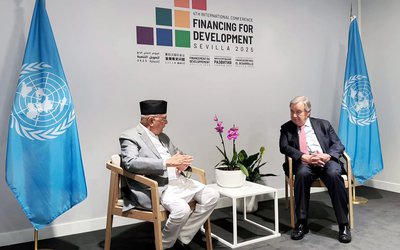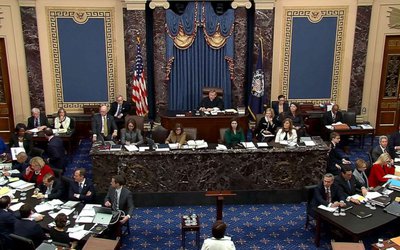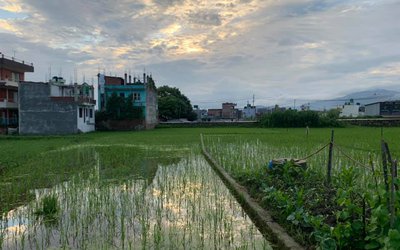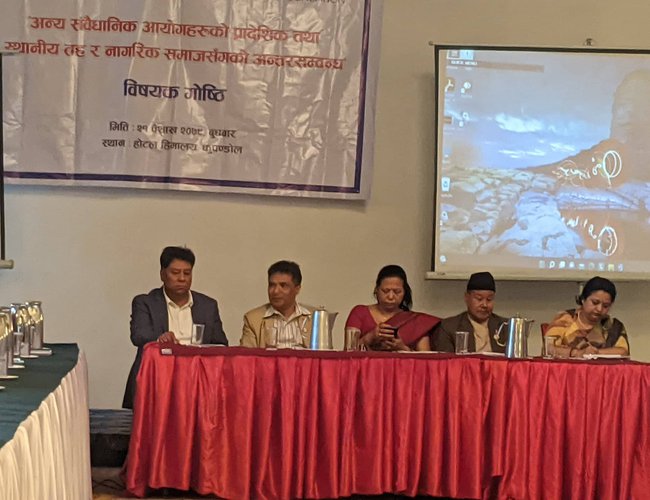
Sanu Kumar Shrestha, the speaker of the Provincial Assembly of Bagmati Province, has disclosed that he has not encountered any officials and commissioners from the other constitutional commissions in his tenure as a provincial speaker of Bagmati Province in the last four years.
“Frankly speaking, I had met only the chairman of members of the National Human Rights Commission, Election Commission, Public Service Commission, Commission of Investigation of Abuse of Authority and Auditor General. I have not seen the faces of any of the chief and commissioners of other commissions and their reports as well. “Provincial Parliament is ready to implement the agenda of inclusion and develop policies for inclusion at the provincial level provided by the commissions,” said speaker Shrestha. “ I don’t know what has prevented them to come to us.”
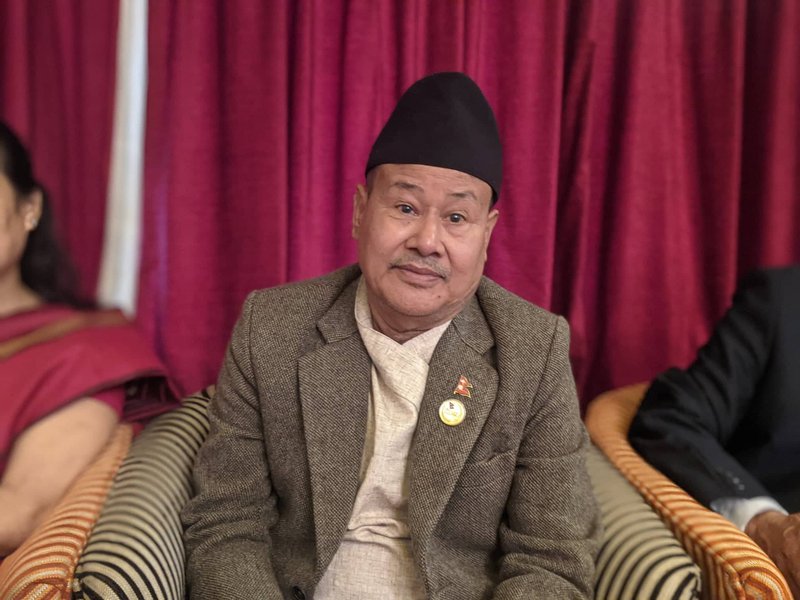
Not only the speaker of Bagmati Province but also the leader of a local level government shared similar views. Outgoing deputy mayor of Kathmandu Metropolitan City (KMC) Hari Prabha Khadgi Shrestha called on other Constitutional Commissions and Civil Society Organizations (CSOs) for collaborating with local levels. She said that the KMC can offer resources and institutional support to the commissions to implement the inclusion agenda and formulate the policies and programs.
“I have to admit that I have not come across any members of commissions to my office during my five years tenure as a deputy mayor and chief of the judicial committee of KMC. The majority of issues related to exclusions, discrimination and domestic violence come to us. My experiences showed that other commissions created in the constitution need to collaborate with local levels to implement their programs and policies,” said Khadgi.
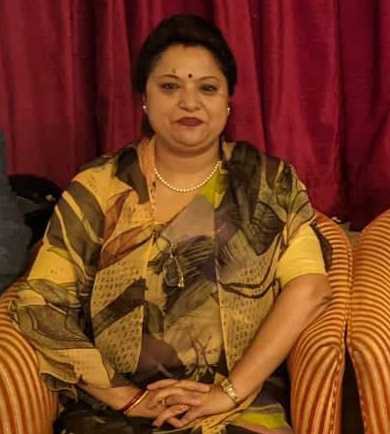
Speaker Shrestha and Deputy mayor Khadgi’s experiences speak the volume of the current state, presence and effectiveness of other commissions in implementing their policies and programs at the local level.
Opening The Debate
In his opening remark Mohan Das Manandhar, Executive Director of Niti Foundation, said,"Niti Foundation is looking at the following thematic areas: 1) how policies can be made public and effective by addressing issues of representation, implementation, and accountability; and 2) the federalization of institutional structures, including commissions, governments and civil society organizations."
“The relations among the Constitutional Commissions, Federal, Provincial, local governments and civil society are important to execute the inclusion and federalization agenda in the country,” said Manandhar. “There are still unsettled three major policy issues like representation, federalization and accountability among other commissions.”
According to the constitution, “other” commissions are also powerful as all others. Office bearers of the commissions are appointed by the President under the recommendation of the Constitutional Commission through the parliamentary hearing. The commissions present their annual report to Federal Parliament through President. Commissioner can remove only through impeachment.
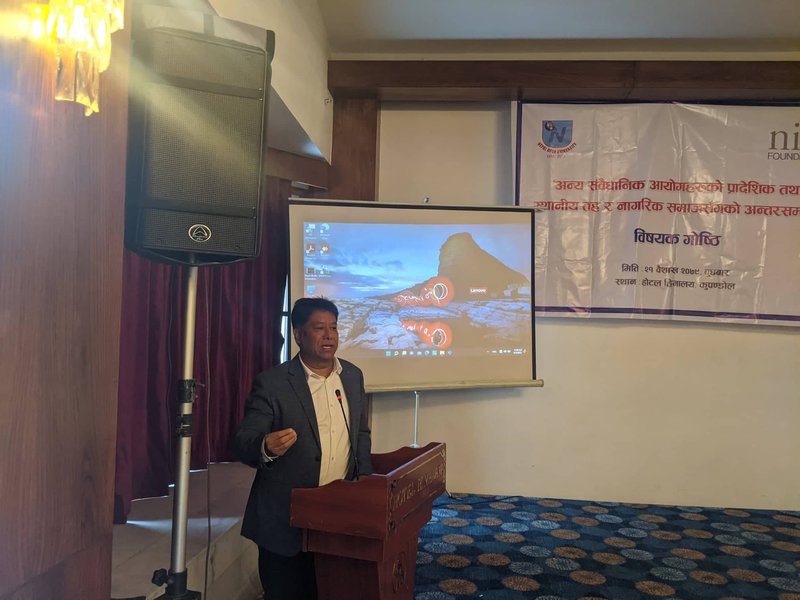
Commissioners of seven commissions are accountable to the people through the Federal Parliament like other traditional commissions. As the overwhelming numbers of civil society organizations, which are the main constituencies of “other commissions,” are still centralized in their structures, there is no one to put pressure on other commissions to go at the provincial and local levels.
Although the elections solve political representative issues through proportional representation at all levels, there remains discrimination, exclusion of marginalized communities, ethnic nationalities, Madheshis and Tharus and violence against women and denials of rights. Other commissions are created to address these problems through policy interventions. There is a provision for inclusion in the constitution. This means the commissions need to implement the inclusion agenda functional.
Manandhar argued that along with making the three tires of government accountable, these commissions should show themselves that they are accountable to the people. “Formally, they are accountable to the people through the House of Representatives. The process is yet to start to visibly prove it.
CSOs Role
As the dispute between CSOs and Commissions appear following the appointment of the new commissioner is yet to settle, the possibility of implementing the agenda of inclusion and federalism through CSOs is far away.
Other Constitutional Commissions are created by agitations and pressures of think tanks and CSOs. Only through the close collaboration and coordination between them alter the current situation. This will be the starting point to move forward.
Civil society organizations like the Niti Foundation support by doing research on where the gaps are in terms of Nepal’s democratic consolidation and figuring out some of the new answers on how to strengthen those things. Despite certain lapses and gaps in the constitution, a democratic framework is in place in Nepal with three pillars of government, provinces, local level and 13 constitutional bodies to make the state inclusive and accountable to all.
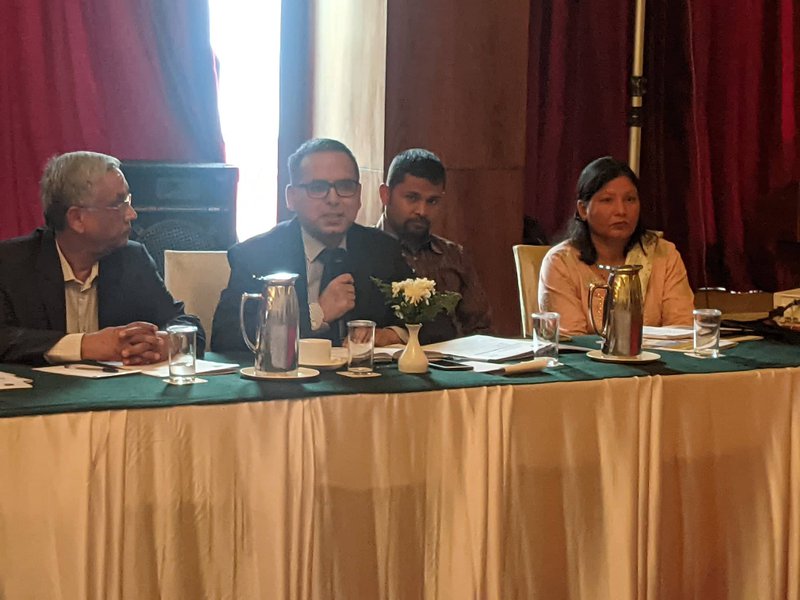
At a time when for one or other reasons the commissions are ineffective and invisible, the challenge is to make all these bodies functional to fulfill the objective of the constitution to make Nepal a federal and inclusive state.
Experts hold the view that one of the beautiful things about Nepal is that it has vibrant CSOs in different sectors. They can still play a critical role in terms of serving as a watchdog to the executive, legislature and other bodies.
Similarly, the commissions in collaboration with CSOs can make the government accountable and responsible to their constituencies and go back to the objective of the strong democracy and democratic consolidation and all of that.
Civil society organizations, which are yet to collaborate and cooperate with other commissions to implement the policies and programs at the grass-root level, do have their own grievances on the issues of representation, appointment and function of the commissions.
“The relation between Other Commissions and federal, provincial, local and CSOs is important for the implementation of inclusion and federalism agenda. All the commissions are presenting their annual report to President and President sends them to Federal Parliament. They need to go to the provincial and local level as well,” said Manandhar.
Although Auditor General, National Human Rights Commissions and Public Service Commission submit their annual report to all seven provinces, none of the commissions reached the province and local levels.
Mohan Kumar Singh, the president of the Madheshi Journalist Association and Madheshi rights activist, holds the view that CSOs cannot collaborate with them till there is reform in representations, appointments, structures and accountability parts of the commissions.
“It is unfortunate to say that those holding the positions in Madheshi Commission are basically those who don’t know the issues of Madhesh,” said Singh. “All the people who are holding the positions at the commissions lack understanding of inclusion and identity issues because most of the appointees came from a political background. Instead of being accountable to the particular community and social groups for the inclusion agenda, the appointees are representing the voice of the party.
Other SCOs members view commissions are just statuary bodies for the recommendations and they cannot compel states to implement their recommendations.
“With the pressure from Tharu Kalyan Kari Society and other Tharus Right activists, Tharu Commission has been repeatedly recommending the government to make new law and policy to provide Tharu separate cluster in reservations as in the elections. However, the government did not listen to them,” said Kuchhad Narayan Chaudhari.
Jointly organized by Niti Foundation and Nepal Open University, the one-day workshop on the interrelationship between the other commission and the Provincial, local level and civil society various stakeholders share their experiences on the policy gaps, laws and constitutional provisions related to representations, appointments accountability part of other commissions.
Prepared by Tara Kanel a presentation on Nepal’s Other Commissions’ for Justice and Inclusion broadly examined the history behind the formations of other Commissions, their mandates, performance and the challenges they faced for the effective delivery of their mandates.
“This is the first forum where I listened about the role and duties of other commissions and civil society organizations in promoting and implementing inclusions and justice-related programs for Dalit, Marginalised communities, indigenous nationalities, Madheshis, Tharus Muslims, backward class, women and others,” said Khadgi Shrestha.
Presentation On Commissions
Presenting her paper, Tara Kanel of Niti Foundation, highlighted the state of other Commissions to ensure justice, equity and inclusion in federal Nepal including their relations with three tires of government and civil society organizations.
Institutions including civil society networks, human rights champions and local governments can liaise between the commissions and the public
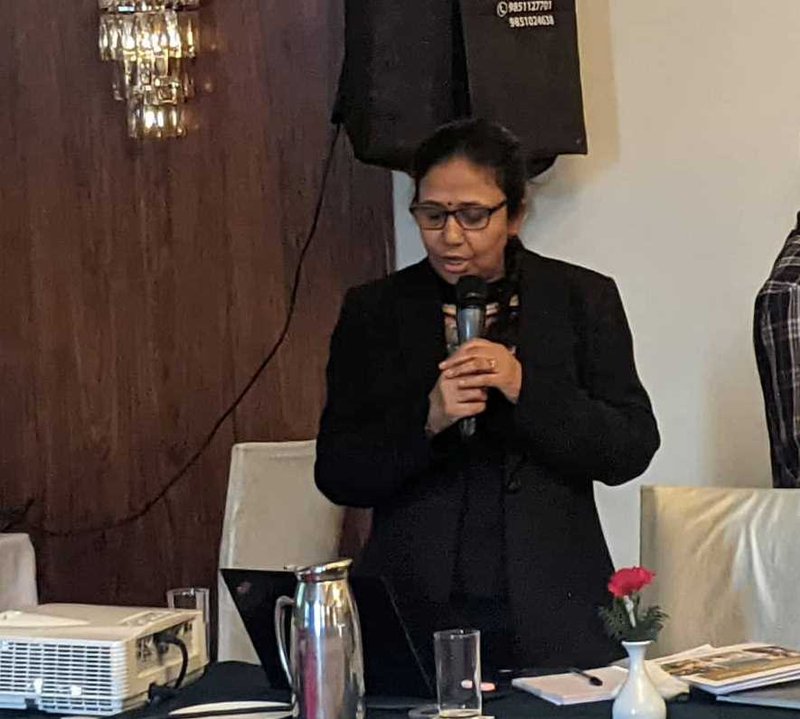
Fair appointments: an expert committee within the Constitutional Council needs to be formed with the mandate of developing a roster of qualified candidates
Dedicated human resources for constitutional human rights institutions with commissions given authority to hire and manage their own human resources as with the NHRC.
Other commissions have their own specific roles. Women commissions look at GBV, discrimination, representation and Dalit commission for caste-based discrimination, untouchability, poverty, access to education and other services, and representation.
Adivasi Janajati, Madhesi, Muslim ad Tharu commission concerned with identity, citizenship, unemployment, representation, education, encroachment of traditional and holy places, population data, human rights awareness, unemployment, representation and identity, culture and languages, citizenship, dispossession of land, recognition of badger system, unemployment, sickle cell disease (SCD), representation.
Sharing the main findings of the inquiry, expert Kanel said that other commissions have a big constitutional mandate to pressure governments to carry out and implement inclusive policies and programs. “As per the constitution, these commissions have six types of mandates to carry out.
“The right to issue an evidence-based recommendation is one of the most important powers given to them,” said Kanel. She said the commissions have a major role to push the federal government to implement the federalism and inclusion issues together.
These commissions are also liaisons of various exclusive groups. The constitution provides these commissions the right to conduct investigations on individual cases related to violence, exclusion and discrimination.
“Coordination and partnership with Provincial level, local level and CSOs are important to create Critical Mass to persuade the Government to comply with the NHRIs recommendations,” said Kanel.
Centralized Commissions
Speakers argue that other commissions need to establish their offices at provincial levels to make them effective and powerful in implementing the policies and programs. Instead of looking and procedural issues, other commissions have to collaborate with the CSOs to press their cases.
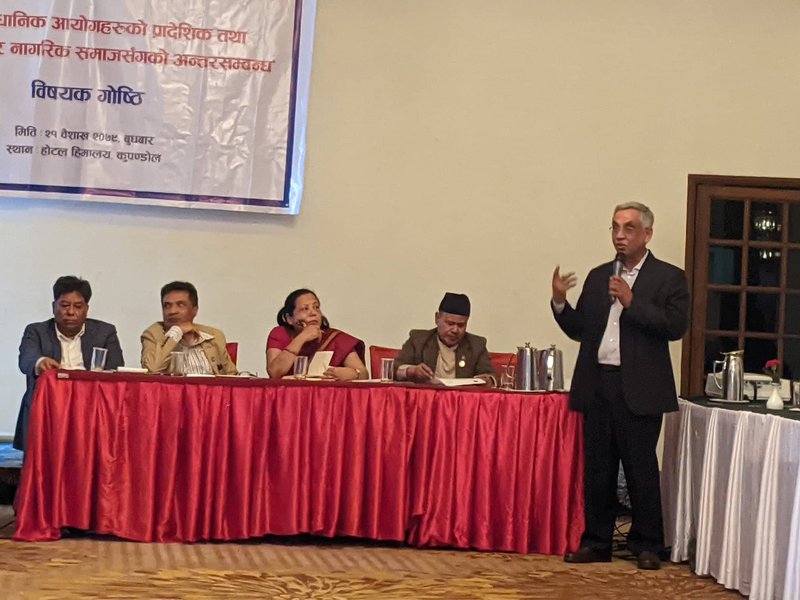
In recent local elections, Elections Commission mobilizes CSOs for voter updating and other elections-related issues. The commission took the benefit of experts of CSOs to prepare the Election Code of Conduct and mobilize the media to put pressure on political leaders to comply with it. However, other commissions are yet to follow it.
Coordination with CSOs is important to create a Critical Mass to persuade the Government to comply with the NHRIs recommendations, Stay resilient, robust and independent during democratic backsliding. However, there is a lack of coordination and cooperation between NHRIs and CSOs
Constitutional Role
The Constitution of Nepal gives an enormous constitutional role to these commissions. However, the question is how effective the role they have played in implementing their mandates and what obstruction and difficulties the commissions faced.
“Unlike previous constitutions which took human rights in a holistic approach, the new constitutions has granted the civil fundamental rights with cultural and social rights as fundamental rights. These commissions are in the constitution to safeguard the cultural and social rights,” said Kanel.
Despite being constituted to safeguard social and cultural rights, other commissions do not have common voices on their similar problems and cooperation and coordinate to fulfill the shared mandate. Similarly, these commissions do not have coordination with civil society organizations.
“Our studies have shown that the implementation parts of the constitution are unsatisfactory because of lack of coordination and cooperation among the commissions. The commission needs collaboration and cooperation with civil society organizations to implement their programs effectively. This is what lacking.”
To make the federal, provincial and local governments accountable in the inclusion process, other commissions have to work in a coordinative manner with those who have shared agendas.
Constitutionally, the other commissions are also national commissions. Another traditional commission like Attorney General is also presenting its annual report to all seven provincial parliaments. There are also 753 legislatures at the local level. Other commission should table their report here also. The Constitution and laws do not prevent them to go there.
“ Of course, there is a certain ambiguity in the laws related to the commissions. Such provisions need to revise. The commissions are legally independent to collaborate and cooperate with the province, local level and civil society organizations. The mandate of the constitution is broader and wide. The acts and regulations cannot prevent the independent functions of the commissions.
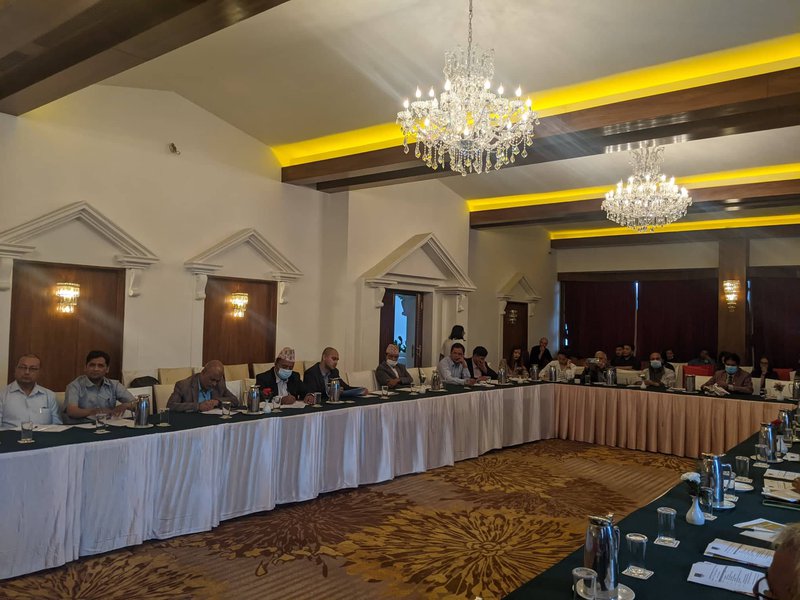
“Traditional commissions like Elections Commission, CIAA, Public Service Commission Auditor General and National Human Rights Commission have been taking funds from external sources and working in collaboration and coordination with CSOs. The Other Commission can also do similar actions. With the amendment of Parliamentary procedure the commissions can move further ahead,” said Dr. Adhikary.
“Other commissions do not have a strategic policy. The traditional commissions like Human Rights Commission, Commission of Investigation of Abuse of Authority, Public Service Commissions, Elections Commissions, Attorney General office have some sort of understanding and the government has been implementing the recommendations given by them.”
As per the constitution, these commissions are advisory bodies. Thus, to be more effective in implementation, the commissions need to follow the persuasive approach.
To follow the persuasive approach, the commission needs to mobilize the masses of people. For this, the commissions should mobile the civil society organizations. There is always a need for critical masses and civil society can mobilize them. Thus, there needs to have coordination among them. This is what lacking.
Out of 13 commissions, newly constituted seven commissions consider themselves weak because of resources constraint and lack of budget. Human resources is also another issue. There are also overlaps and duplications in the mandate.
Others argue that the constitutional provisions and the law is responsible to weaken the commissions. Here CSOs can make a big difference.
Centralized In Federal State
At a time when the state has already federalized with federal, provincial and local levels, civil societies, the constituents of the other commissions are still centralized.
Public policy should be value-based. Liberty and justice Policy should be published. State structure should be accountable. Representation, justice voters representation and excluded groups do not have representatives
Fairness depends on who gets what, The commission should demand justice for people who are themselves facing unjust.
They have to look for fairness whether the budget is allocated or not. Allocation of budgets. Fair and justice. Other commissions unfairly treatment for them by parliament.
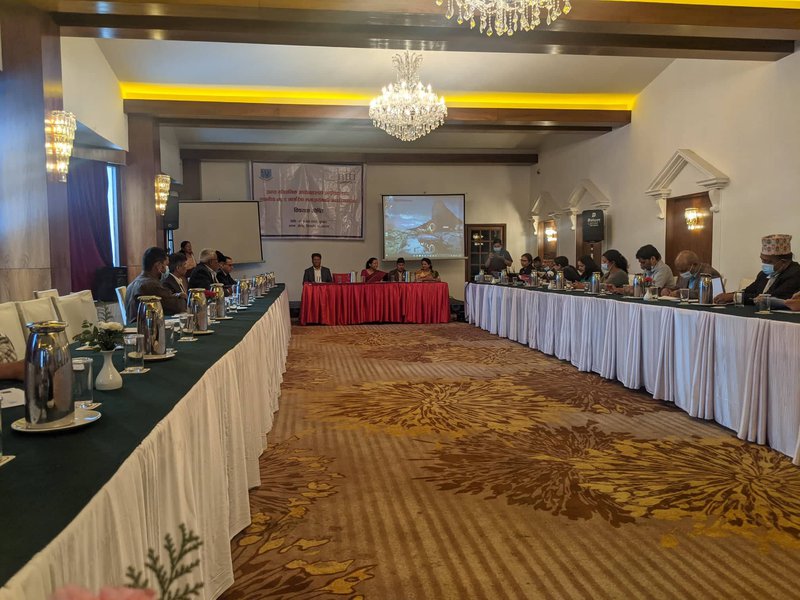
Had the civil society groups, which too are centralized in their actions and structures, federalized, the commissions would have seen a different scenario. Although the constitution has already implanted seven years ago, nobody is taking notice that federalism and inclusion, which are major parts of the constitution, is yet to function
As the other Commission, which are created by the Constitution of Nepal 2015 to promote inclusion and defend the marginalized, ethnic groups, Dalit and women and unable to proceed with their work under federal spirit, the civil society organizations, the constituencies of the Commission, are also centralized in their nature. With the of initiatives' lack of support, the commissions have been financial and administrative exclusion themselves.
Vice-chancellor of Nepal Open University Shilu Manandhar Bajracharya said that the university is ready to work in collaboration with CSOs and other stakeholders to conduct the research and other academic work.
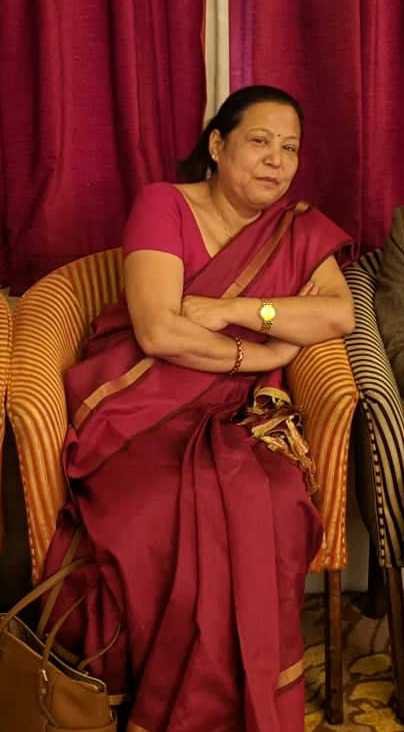
Following the signing of the peace agreement in 2008, there was so much hope for a new Nepal that is representative of all of the different people that are within the population. The struggle come with the new constitution from the first and the second Constituent Assembly with the most definitely an inclusive one that allowed people to air their concerns.
Challenges Now
Although Nepal promulgated a new inclusive and federal constitution, there are still certain grievances as the constitution has not fulfilled all of the aspirations of the people demonstrated in the Comprehensive Peace Agreement. The promulgation of a new constitution in 2015 is a starting point. However, there are yet to do a lot of things to work with the constitution and the bodies that are created at each level of government to exercise their democratic rights. The constitution and ongoing process are not perfect but it is moving forward and it is only in being since the first constituent assembly of 14 years. Many people see that Nepal is a bright spot in South Asia in terms of inspiring democracy.
Why Nepal’s Other Commissions Matter for Justice And Inclusion? Link
Civil Society Organisations Interview
We Are Waiting for The Verdict Of the Court To decide On Collaboration: Singh
Mohan Kumar Singh, central president of Madheshi Journalist Association and coordinator of Samridha Madhesh Nagrik Abhiyan. Singh, a Madheshi activist and journalist, spoke to New Spotlight on the role of CSOs.
How do you see the relations between Madhesh-based CSOs and Madheshi Commission?
When we talked about the other commission, you need to know about the history and source of origin and process of establishment. Here is a huge deficit and differences among us. The origin of the Madheshi Commission is the result of Madhesh Andolan. Since the agitation has generated awareness among various communities about their rights, exclusion and discrimination, these commissions are born to address all those issues. Following agitation, there increased the awareness in the community and civil society organizations take up these agendas at Constituent Assembly.
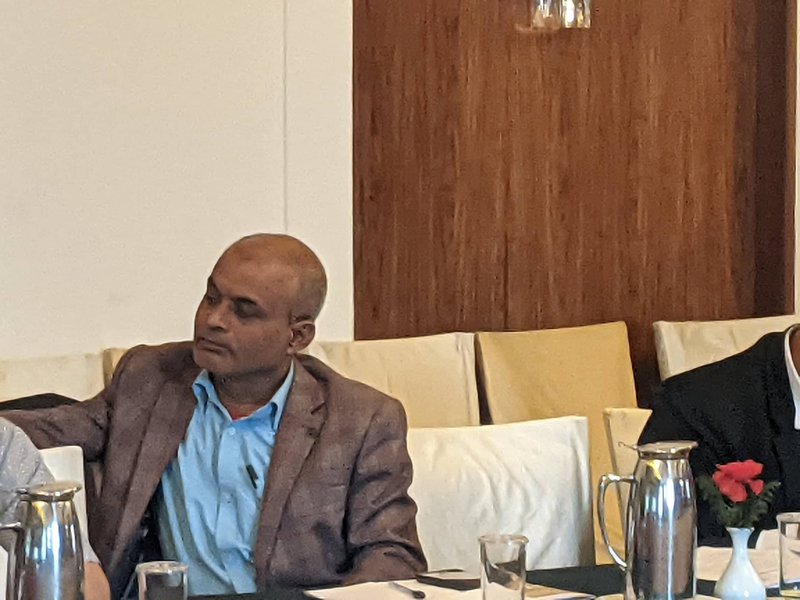
Why there is no coordination and collaborations with CSOs and Commission?.
It is unfortunate to say that those who were against inclusion, and federalism during the agitation are heading the commissions. Prime Minister K.P. Sharma Oli, who was dead against the issues of inclusion, identity and discrimination, found the opportunity to make the commission irrelevant by appointing political workers. It is impossible for us to join the party agenda. Most of the commissioners who were appointed by PM Oli do not have any background in taking the agenda of inclusion. As the commissioners appointed to the commissions are ignorant about the issue, they turn the commission irrelevant.
What went wrong?
If the initial formation was wrong, it would go for decades. Those who struggled and sacrificed for the establishment of commissions are now nowhere in the picture. The agenda has been hijacked from them. The experts, activists, scholars and researchers who were at the forefront were left behind in the race. What happened now is the political leaders hijacked the agenda and turned the commission into a party recruit center.
When will end the current stalemate?
As a petition in the Supreme Court, stakeholders are detached from the activities of other commissions. This makes commissions inactive and ineffective to address the issues related to inclusion, discrimination and identity. With non-cooperation from CSOs, the commission is unable to bring the issue to the broader public. There need for cooperation and collaboration between the commission and CSOs to establish the agenda. Since the newly appointed commissioners do not have any connections with CSOs, they have not shown any interest to have cooperation. The commissioners are sent to destroy the institutions not to make them strong and effective. As per the party mandate, the commissioners are successful to fulfill their mandate to make it defunct and failed.
Why did not SCOs visit the commission to put pressure on it? In the first stage, there will be no legal controversy over the appointment?
I agree that the CSOs’ apathy towards the commissions is also responsible to make the commissions ineffective and irrelevant. Initially, CSOs were active and enthusiastic to work in collaboration with other commissions. Their hope was shattered when the government led by Oli appointed all the vacant positions in absence of the House Of Representatives. To prevent the appointment, CSOs filed a petition in the court demanding to declare the appointment null and void. However, the court has declined to give interim order and the process sent to a regular hearing. This halted all the process of collaboration and cooperation between the commission and CSOs for at least now. Till the verdict of the court on the appointment, nothing can say now.
What will be the situation now?
There is now a huge gap between the commissions and CSOs. There is a crisis of confidence. Some CSOs which had shown interest in collaboration are also now in wait and watch. This has badly hampered the activities of the commissions. Civil society is now considering the commission a useless place to work in collaboration.
What will be the future course for CSOs till the court verdict?
There is no alternative to work in close collaboration between the committee and CSOs. CSOs need commission and commission needs CSOs. However, the new move will take place only after the decision of the court, we can start thinking about what to do. Our experiences have shown that the commission cannot produce any result-oriented work without collaboration with CSOs. We do feel the same Civil society is a complimentary body of commissions as they can build public opinion in favor of them. At a time when the government is showing apathy towards the commissions, only civil society can strengthen them. The first and foremost important factor is CSOs. I think the commissioners should have realized it.
Since CSOs raised the question about inclusion and federalism, how about your organizations?
Since the promulgation of the new constitution, all the CSOs are now in the process of transformation from unity to federal and exclusion to inclusion. We have central, provincial and district level organizations and district-level organization is autonomous to launch the program on their own.
The Current Problem Is With Implementation of Federalism: Tamang
Parshu Ram Tamang, an Ethnic rights activist and Central Committee member of the CPN-Maoist leading Federalism Study Center, is a well-known name in Nepal. Tamang spoke to New Spotlight on the issue of inclusion and the role of Other Commissions. Excerpts:
As an activist for inclusion, and leader of a political party, how do you see the current situation regarding inclusion and federalization?
I am ready to take the issue in the inner-party discussions to make the commission and federalization agenda effective. The current problem with federalism and its implementation is related to the people in power. Those who do not know the concept and commitments to federalism are at the forefront of implementation.
How do you see the implementation of Federalism?
Just talking about the issue of implementation of federalism and other commission does not make any sense. We need to understand what are the international practices? We have incorporated federalism taking notes of several federal countries.
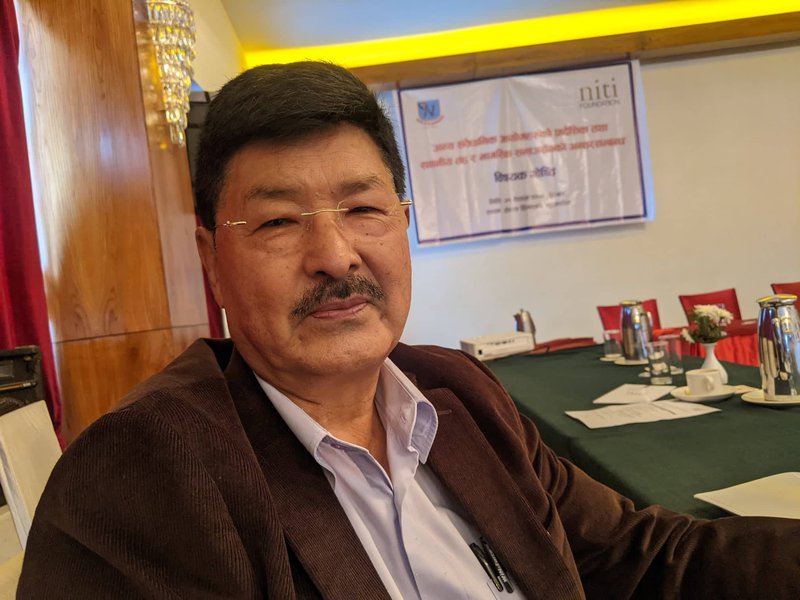
What do you suggest to make other commissions Effective?
Before talking about the ineffective role of commissions in addressing the inclusion, ethnicity, identity, discrimination and gender agenda, we need to know how these agendas entered in Nepal. When we started the movement, conceptually, there were saying that King was common for all. However, the monarchial state was not inclusive. The state was under the control of a section of people and it excluded the rest of the ethnic groups, minorities and others. Monarchy rule was based on Hinduaisation and power was controlled by the upper calls of Hindus. All the top position in the state was held by these group. The ruler excluded other cultures, languages, religions and dresses. There was discrimination on the basis of caste and region. Dalits, Madheshis, janajatis and minorities were facing discrimination as unitary states. Thus there was a realization to bring federalism to end the issue of exclusion.
How do you see the implementation of the agenda of inclusion?
Of course, the current state is not perfectly inclusive and federalized. However, the current state is much better than the earlier one. If we see the past 15 years of the state, one can find defiant change in its structure and participation of all the groups in state affairs. It is not idle and there still need to do a lot of things.
As far as the blame of making the commission a party recurring center is concerned, I do hold a bit different views than the current trend. CSOs supported the agitation but the current nature of the state is the outcome of a long struggle of political parties and the sacrifice of their leaders and workers. In this context, it is natural to choose the commissioners from the parties which is in power. We cannot say to political parties that you cannot appoint him or her but we can say is that kindly appoint the party caders who have experiences and linkage with the exclusion issue. This is a party system of governance and I don’t think it is wrong to appoint party sympathizers in the commission. There are hundreds of more capable and eligible, However, the CSOs need to see whether the party appointees are eligible for the post or not.
How do make Other commissions effective in the context of implementing policies of inclusion and federalization?
First of all the inclusion and mainstreaming concept needs to understand before taking about structural, functional and other issues. In the early days, the state and those who controlled the state in the past considered inclusion as a transformation of society. However, our current concept of mainstreaming and inclusion is a different one. Our inclusion aim is to empower and brings all those ethnic, religious and social groups into the functioning of state structures. Thus, this constitution is not just for transformation as in the past but the inclusion of all the citizens and groups in the mainstream.
How do you see the role of political parties?
Whether one likes it or not, political parties are the main actors in the decision regarding the implementation of the inclusion agenda. Where do we reach discussing the federalism and inclusion agenda by civil society by putting political parties outside? This kind of discussion help to write a good report but it will not be effective. When they are in the government, political parties can recommend persons and experts affiliated with the part to lead the commissions.
How do you see the role of CSOs now?
The government cannot ask for names of Civil Society organizations CSOs. In my words, CSO is a permanent opposition of the government and state. They need to play this role to put pressure on the political parties. Instead of following political lines, CSO needs to react to the appointment on the basis of the qualifications and experiences of the persons appointed in the commission. CSO must say right is the person is qualified or wrong if appointees are incapable. If CSOs start working taking the side of the government, they will lose their identity. I don’t regard them as civil society.
What are your suggestions to change the current state?
There need to come three factors together: the first political parties, CSOs and third implementing agencies or government organizations. The implementing agencies are Constitutional Commissions, Provincial governments or local governments. We have been practicing the party system. Thus, a political party is a forum to make policies and programs. I bring all three factors together, there will be policy intervention. Only through this, we can move forward. If CSOs and political parties work in isolation, nothing will happen. We can see a lot of policy research prepared by the CSOs. However, they rarely reach the political parties. Our current system is that parliamentarians raised the issue in parliament formulated by the political parties. Parliament alone cannot do anything without political parties. The role of civil society is to provoke the issues and send them to parties. If the programs and research are framed in coordination among the three forces, they will work. Programs and policies conducted by separating these three entities will not be productive. Frankly, speaking CSOs are not working in the spirit of federalism and inclusion.
We Are Working With Tharu Commissions: Prem Lal Chaudhary
Premi Lal Chaudhari, general secretary of Tharu Kalyankari Sabha, is a leading activist taking on the issue of empowerment and inclusion of Tharu. Chaudhari spoke to New Spotlight on various issues. Excerpts:
The constitution has created other commissions to address issues related to inclusion, identity and empowerment of various groups. How do you see the state of relations between Tharu NGOs and the Tharu Commission?
After a long struggle and sacrifice of all Nepali people, we are able to promulgate the new constitution with several clauses especially related to the empowerment and protection of the minority, ethnic and marginalized groups. The Tharu Commission and the other six commission is a part of this change. As Tharu Commission has created to address our issue, Tharu rights groups have maintained a working relationship with the commission. In all three previous reports presented to the President, Tharu Commission recommended formulating a new federal law to separate the Tharu cluster. It is good to say that the commission is giving space to our concerns.
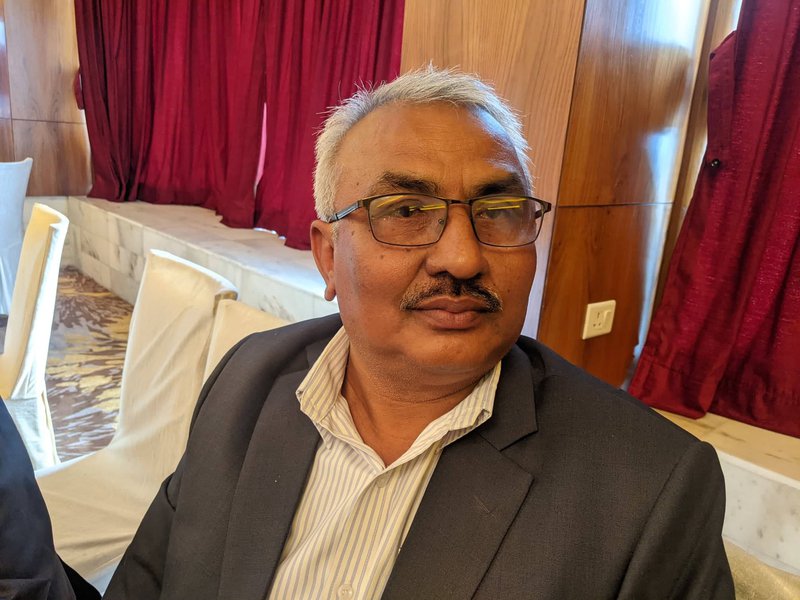
What are the major problems right now racing the Tharu community?
They are not getting the rights given by the constitution. Under the provision of the constitution, the federal parliament would have passed a law within six months separating Tharus from the Madheshi cluster. Due to a lack of law, Tharus are contesting all the government jobs through the Madheshi cluster. Under the existing law, there are reservation quotas for Madheshi, Janjati and Dalits but the government is yet to pass the law given a separate quota for Tharus.
Has Tharu Commission taken your issue?
We have filed an application at the Tharu Commission showing the flaws of laws and discrimination against the community. The Commission took the issue and directed the government to protect the constitutional rights of Tharus. However, the government has not responded to the direction.
How do you see the function of the commission?
With its limited resources, Tharu Commission has been working to empower Tharus and protect their rights. All the members of the commissions are from our own community though they hold different political ideologies.
How much collaboration does your community have with the commission?
As far as the protection and empowerment of the Tharu community are concerned, we hold similar views and we have been working in close collaboration. The Commission discusses with us and holds the meeting with Tharu rights CSOs before presenting their annual report to President.
How do you see the state of Tharus after the promulgation of the new Constitution?
By recognizing the Tharu as a separate cluster, the constitution recognizes our communities. All the political parties have also amended their own constitution recognizing Tharus in a separate cluster. Elections Act also recognizes the separate
How do you see the relations of Tharu Commissions, local level and province?
We have launched some campaigns at local and provincial levels in collaboration with the commission. This helped to raise the issue of Tharus.

Keshab Poudel
Poudel is the editor of New Spotlight Magazine.
- FOURTH PROFESSOR Y.N. KHANAL LECTURE: Nepal-China Relations
- Jun 23, 2025
- Colonel JP CROSS: Centenary Birthday
- Jun 23, 2025
- REEEP-GREEN: Empowering Communities with MEP
- Jun 16, 2025
- BEEN: Retrofitted For Green
- May 28, 2025
- GGGI has been promoting green growth in Nepal for a decade: Dr. Malle Fofana
- May 21, 2025

